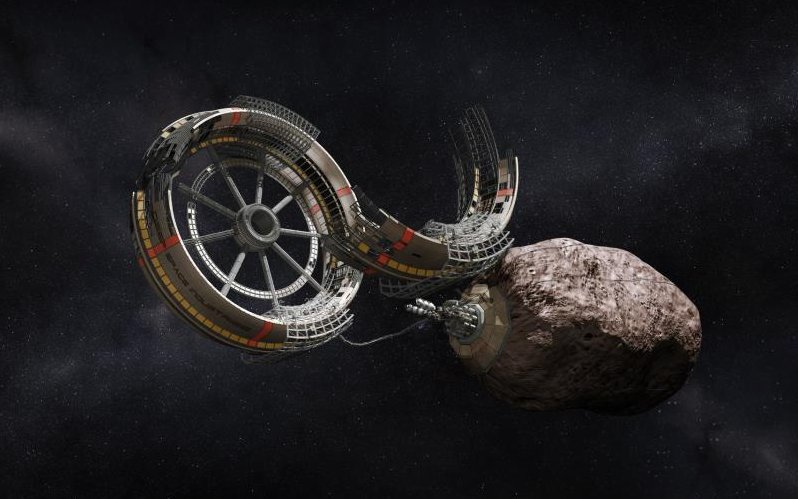

According to international treaties, no country is allowed to own things like moons or asteroids. But what about a company?
A new bill would allow space mining companies to own pieces of space. Although they couldn’t own a whole asteroid, for example, the bill would ensure that space mining businesses would legally own the resources they extract from that asteroid.
Last week the bill passed in the Senate with a few amendments, and yesterday those amendments were accepted in the House of Representatives. Now the bill is off to the Oval Office, where space policy experts predict President Obama will sign it into law.
A Controversial Bill
Before space mining companies invest too heavily in developing the technologies to pull minerals from asteroids, they want to be sure they’ll be legally able to own the materials they extract. Probably they would if it went to court, but it’s always helpful to have things in writing.
The space mining provision that would start to define those rights is tacked onto a larger bill that deals with a lot of other issues regarding private space exploration–including who you’re allowed to sue if you get hurt on a private spaceship.
The Act would also renew the private spaceflight industry’s “learning period,” wherein regulations are relaxed in favor of encouraging growth. At the moment that grace period has already expired, and technically the FAA could begin regulating private spaceflight any day now–which is one reason why Congress wants to push the bill through quickly.
The asteroid mining portion of the bill has been controversial from the start, with some space lawyers opining that it was added on at the last minute and lacking in detail.
“Academia is pretty much split right down the middle on this.”
Others think there should have been more discussion both in a science committee as well as within the international community before trying to push this law through.
Policy wonks are divided on whether the U.S. actually has the ability to give companies property rights in space, since the U.S. technically doesn’t own those resources itself.
Frans von der Dunk, a space law professor at the University of Nebraska, compares space to the high seas–everybody owns it, but fishermen don’t have to apply to an international authority to go out and fish. “Freedom of activity is the baseline and limitations to such freedoms,” such as preventing pollution and over fishing, “should principally be agreed upon at the international level.”
“Academia is pretty much split right down the middle on this,” Michael Listner, lawyer and founder of the consulting firm Space Law and Policy Solutions, told Popular Science during an interview in September. “When you have that much dissent, you have to talk about it.”

How Will The President Respond?
Compared to Republicans, Democrats have generally been less enthusiastic about the space resources bill, favoring more scientific discussions first. However, President Obama has been supportive of private space exploration up to now.
“I do not suspect any hiccups at this stage,” says von der Dunk.
Listner, too, thinks the President is likely to sign the act into law, if only to make sure the other provisions get enacted in a timely manner.
He may have some concerns with the space mining portion, though, and Listner thinks he could resort to a signing statement. “The signing statement is not a veto but [the President’s] way to comment on provisions of a bill, and in some cases diminish the effect of the bill. It’s very possible that he may sign it into law, but put a signing statement in there addressing the resource part.”
Update November 17, 2015 at 4:15 pm Eastern: This post was updated with comments from Frans von der Dunk.
